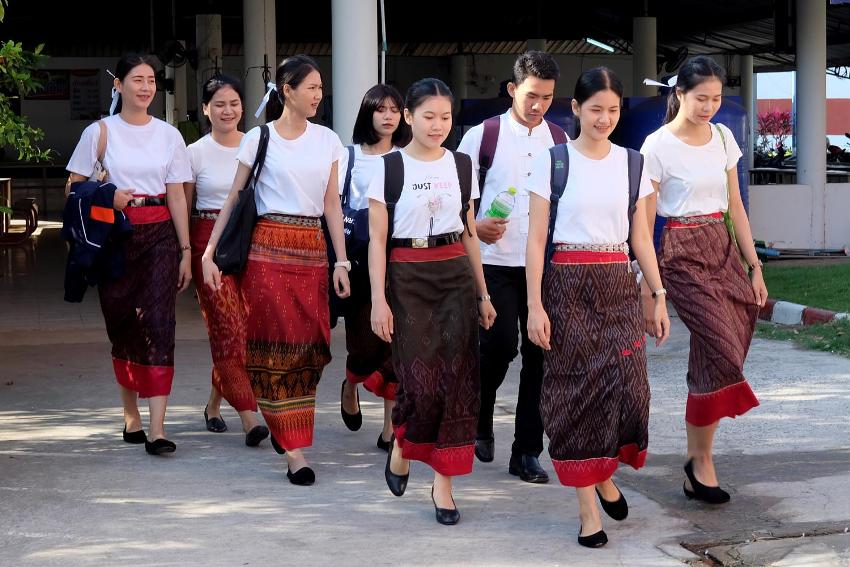News
The Phasin Skirt Making a Cultural Comeback in Northeastern Thailand

Until recently, Phasin (Sarong) — a long fabric wrapped around the waist like a skirt — was considered outdated. It was seen more as a relic from the past, a piece of cultural heritage that belonged in the museum.
Back when Phasin was still widely worn, people used to weave their own clothes with their own patterns to wear. While this D-I-Y approach to fashion managed to last for centuries even after the arrival of modern fabrics. Today Phasin is generally seen as just a novelty.
Well not any more. — At least in the lower northeastern provinces of Nakhon Ratchasima, Buri Ram and Surin.
Female students and staff at universities and government offices have been encouraged to start wearing Phasin. The are wearing the Phasin to classes and work, especially on special occasions.
The push is a part of the government’s initiative to promote local cultural heritages as a part of daily life.
In Buri Ram and Surin, some villages have even become famous for weaving exquisitely-patterned Phasin. Here, a well-made and beautifully patterned cotton Phasin can fetch many thousands of baht. The premium version made of silk may go for over 50,000 baht per piece. Especially if they were woven by a famous traditional craftsman.
Akradej Deeoom, 37, a lecturer of Western University, Buri Ram Campus, told the Bangkok Post the government’s push has been well-received by the public.
“It’s practical. Plus, students are only required to wear them once a week and on special occasions,” he said.
Mr Akradej, who oversees the university’s cultural preservation campaign, said he hopes to see phasin as part of mainstream fashion in the future.
“This campaign can become a model for the preservation of other Thai art forms and cultural heritage,” he said.
Phasin (Sagong) made of silk or cotton
The campaign to bring Phasin back into fashion at Western University’s Buri Ram campus launched in 2018. As part of the push, the university asked staff and students to wear Phasin on Tuesdays.
The university asked staff and students to wear Phasin teen daeng. — A variation local to Buri Ram which is made of silk — but cheaper. Even more handwoven cotton Phasin are also also acceptable.
“The aim of this campaign is to promote local wisdom and honour Queen Sirikit. Her majesty has played a significant role in preserving and promoting traditional hand-weaving in Thailand. As well as Thai silk,” said Mr Akradej, who oversees the university’s arts and cultures affairs and activities.
For many students, the university’s Phasin policy was once seen as yet another order to follow. However, many found themselves becoming big fans of the traditional cloth.
One of them, is Kalayarat Niwinram, 20, a second year student at Western University. She told the Post that since she started wearing Phasin teen daeng in August 2018, she has become a fan of the garment. She often incorporates it into her daily outfit for day-to-day activities beyond special occasions.
“I feel proud and very confident when I go about my day in it,” Ms Kalayarat said.
Source: Bangkok Post































